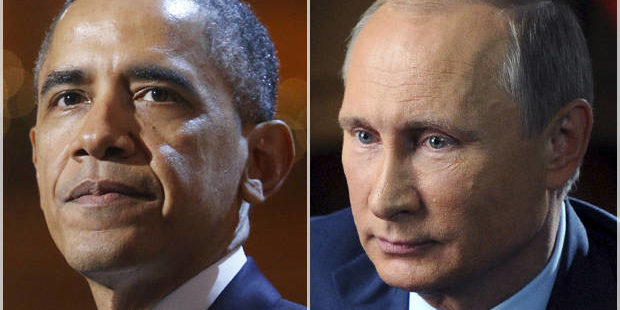
The West escalates with Russia: Make no mistake, a second Cold War is now official NATO policy
NATO’s aggressive posture towards Russia sets a dangerous course for Obama’s successor
There have been 22 NATO summits since the first convened in Paris 59 years ago. If you study the chronology, they are more frequent during those times the alliance loses its declared purpose and has to find some new task — a new “threat” to justify the vast bureaucracy in Brussels, the comfortably seconded generals, the military exercises, the incessant production and reproduction of mass anxiety and, of course, the defense contracts that are NATO’s abiding raison d’être.
Hence, nearly back-to-back summits — eight in 10 years — from the late 1980s through the 1990s, when NATO spluttered to explain itself in the post–Soviet context. Hence, 12 summits in the new century’s 16 years as strategists flit from one “mission” to another, never persuasively, while adding a dozen members on the alliance’s eastern flank—all but one (Croatia) former members of the Warsaw Pact.
The NATO convention concluded last week was a standout — easily the most important of the post-Cold War era. We must not miss its meaning. NATO summits may not be your taste, and who can fault anyone for this? But Warsaw has everything to do with the life you will live in coming years. Think of it as “trending now” if you must — now, as in the next decade or two at a minimum.
Two reasons.
One, while talk of Cold War II has been common for several years, as of last week it is official policy in Washington and at NATO headquarters in Brussels. This is a grave, reckless step. In broad outline what just occurred is not unlike what Washington did in the late 1940s to initiate Cold War I. The consequences in that case cost millions of lives, trillions of dollars and endured for 42 years. We still wear the scars.
Two, President Obama’s foreign policy legacy is now complete in outline. We now know what he will hand his successor, and it is long on mess, short on success. Once again, an outgoing president surrenders ground by leaving unexplored nearly all opportunity for authentic progress toward sound, 21st century policies abroad. Once again, a new president must begin — at least on the foreign side—further back on history’s clock than the point from which his or her predecessor set out four or eight years earlier.
The disorder and dangers just baked into our cake are awful enough to contemplate but only part of the story. There is also the question of urgency. We do not have time for this, readers. There is too much to be done to let generals and profiteers, the one often blurring into the other, indulge in another global confrontation. Too many openings are lost, and this mistake is not free of cost—as Cold War I ought to have taught us.
National decline is not inevitable, I continue to insist, but it is made of wrong turns such as this. That, indeed, is among Cold War I’s greatest lessons: In what we take to be our moment of triumph we find defeat.
*
Numerous matters were settled in Warsaw. Cyberwar now falls under NATO’s purview; the alliance will support the European Union’s effort to police human trafficking across the Mediterranean. But other things matter more.
One, the U.S., Britain, Germany and Canada will each station a rotating battalion in a front-line state. These are respectively Poland, Estonia, Lithuania and Latvia. Two, after many years of heated debate, nuclear weapons are to remain part of the NATO arsenal in Europe. Three, the alliance officially assumed command of an anti-missile defense system that, as of now, has components in Spain, Turkey and Romania.
There is no mistaking the magnitude of these decisions when taken together. I liken Warsaw last week to Washington in the spring of 1947, when Truman’s advisers and Senate allies determined it was time to sell the public a permanent wartime economy and a national security state. What followed was his “scare hell out of the American people” speech, so named by Arthur Vandenberg, a Republican senator from Michigan and one of Truman’s intimates. What followed that was $400 million in aid to the fascist Greek monarchy, and what followed that was the first Cold War.
Reality No. 1: The West is now to have troops closer to Russia than ever before in history. Reality No. 2: Russia has signaled no intention whatsoever of doing anything more than defending its borders, rock-candy mountains of unsupported nonsense in the press notwithstanding. Reality No. 3: The only reason these soldiers will rotate is because NATO agreed with Russia in 1997 not to station troops permanently east of Germany. These deployments are a disgraceful fiddle, thus. Reality No. 4: NATO officers continue to insist that missile defenses are intended to counter Iranian missiles. It now takes very big brass to trot this one out: Given last year’s nuclear accord, the standing explanation no longer passes even as a fig leaf.

